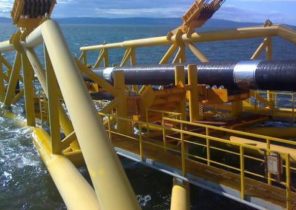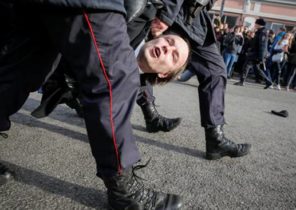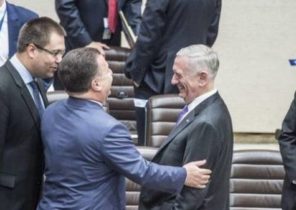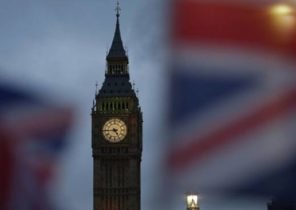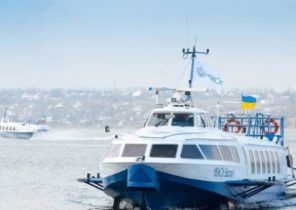
In just a few years, the Bank “Opening” has become the largest private Bank in the country. From the dark past to influential friends, who is this new Russian oligarch, reminiscent of the wolf of wall street from a Scorsese film?
Tennis, Electrophysics, bold financial algorithms, slightly reminiscent of the parable of the Lehman brothers. So in a few years, the Bank Opening became the largest private Bank in Russia and financial Empire with a fortune of over 40 billion dollars. Instead of gambling he plays with state funding, with the support of the state, using cheap loans from the Russian Central Bank and numerous intersecting communication, from government to opposition. All thanks to the economic crisis and the anti-Putin Western sanctions that do not apply to On”opening”.
Until 2012 about this Bank few people have heard in addition to those who worked there. His story was recently told the Financial Times. At its center is Vadim Belyaev, 50-year-old CEO of the holding company and the first shareholder of the Bank (with 28.6% of its shares), according to Forbes, he is at 185 in the list of the richest people of Russia, having the status of $ 400 million. Until recently his name was not widely known. In Moscow someone compares it to the wolf of wall street film from Scorsese, calling the Russian Jordan Belfort (Jordan Belfort). Or with Ostap Bender, a mythical anti-hero of the Soviet literature, a polygamist, an artist, a thief, a chess grandmaster, a man without a specific profession.
He, a lover of black clothing, he prefers to call himself a “financier by chance”. His biography, worthy to become the plot of the novel-a Thriller is a book on the history of Russian capitalism of the last 25 years after the collapse of the Soviet Union, it repeats the path of many of the oligarchs that emerged in vague 90-e years, in the era of wild capitalism in Russia under the auspices of Boris Yeltsin, who comes to the state capitalism of the 2000s, the era of Vladimir Putin.
20 years, Belyaev remained afloat, having survived the first crisis of 1998, then 2009. In the crisis he made his money. Muscovite, son of the famous author of chemistry books for high school Stanislaus Vulfson, education Belyaev engineer and programmer.
“I started from a young age, in 1985, fartseval,” says Belyaev Russian Forbes, what in Soviet jargon was a trade on the black market hours foreign production, banned in the Soviet Union goods. So he accumulated his first capital. Then came privatisation, and he offered his services as mediator: bought for different companies shares of Moscow enterprises, the notorious vouchers, was looking for clients and gambled, went to the metro with the bags stuffed with checks and cash.
In 1994, on the tennis court happens to him a fateful encounter: he met with Boris mints, her future partner and friend of Anatoly Chubais, the ideologue of the privatizations of the 90-ies. On the tennis court in 1990, he also met with Boris Nemtsov, former Russian Deputy Prime Minister, who later became the opposition leader, who was killed two years ago in Moscow; at that time he worked in the state property. Two years later, they become partners in a small construction company in the capital. In 2001, Russia’s GDP is growing, and Belyaev and Mintz are engaged in the Discovery, mediation firm, founded in 1996, transforming it gradually through mergers and acquisition of companies. Today, the group provides financial services worldwide, from brokerage to trading hedge Fund: it includes 10 banks, there are branches in London and new York.
His first specialization was in the absorption and rehabilitation of failed banks after the crisis of 2008, which was carried out with the use of state of the global rescue plan size of 800 billion rubles. The second specialize in lending to large Russian companies, hungry for dollars, at a time when both the public credit institutions, came under the American and European sanctions (Sberbank, VTB and Gazprom) and large private banks are owned by close friends of Putin (like the famous Bank of Russia, appearing in the Panamanian documents) are faced with the freezing of access to international capital. Opening enjoys it and comes out of the situation victorious.
Opening holds three key operations that contribute to its speedy formation from small fish to giant of the financial world. In 2012, Belyaev becomes NOMOS, one of the first ten Russian banks, taking a loan of 1 billion rubles to VTB. In 2014 after the commencement of the sanctions he receives in Bank 127 billion (which then added 47 more) for the renovation of the Bank trust, known for its incredible commercials with Bruce Willis. This is an unprecedented figure and huge credit of trust from the side of Elvira Nabiullina, punctualness head of the Central Bank, recently named the head of the European Bank. Some evil tongues say that he couldn’t do it himself. It might be a money Chubais (who is now head of Rosnano) and the VTB by using semi-legal schemes and loans to its own shareholders. “They look at the balance, find the hole, and the Central Bank say it twice”, — says the source.
In late 2014 one powerful blow helps to increase its assets threefold. Because almost half of the falling oil prices and the rapid depreciation of the ruble have oil colossus Rosneft under the control of Putin’s closest ally, Igor Sechin formed a debt of $ 18 billion.
Then, resorting to a more complex system of agreements on resale, which was later called “muddy” itself Nabiullina, the Opening is used as an anonymous intermediary for loans of the Central Bank: “This is one of the most daring operations in the short history of Russian capitalism, which almost destroys in the process the economy itself,” writes the Financial Times. After this maneuver the black December, the ruble drops 20% against the dollar in just one week.
Putin publicly scolds Sechin. However, the deal “demonstrates that Russia could circumvent sanctions using little known banks like the Bank Otkrytie”. Obvious is also how ambiguous is the term “private”.
A year later “Opening” again uses the loans of the Central Bank to buy up 74% of the sovereign debt of Russia. And the overnight doubling of its assets. In 2017 the planned merger with Rosgosstrakh, the largest Russian insurance company, which will give the new group an impressive capital of 50 million customers and over 100 thousand employees. In the future, “Opening” plans to purchase a fourth diamond deposits in the country.
Such dizzying growth worries experts. Some fear that “the Yellowstone Volcano may explode”, Recalling how in the fall of 2015 the Opening was on the verge of bankruptcy. Its subsidiary, Bank of Khanty-Mansiysk (XMB) was suspected in the intention of building a financial pyramid by attracting deposits of citizens in a growing loss method “cleaner”. Then Elvira, which since the crisis has revoked the license of the 300 Russian banks (including the First Czech-Russian Bank, which provided € 9 million to the National front of marine Le Pen, and that XMB will take the place of his agent on payment of compensation), put it in a list of ten Russian banks “of systemic importance”. That is almost equivalent to the concept of too big to fail.
Belyaev on his way missed and Italy. The most famous is the episode with the company Tiscali, which in 2015 is inferior to the Russian investment Fund Odef associated with the opening of the Bank, 22% of its shares, today this number decreased to 17%. In 1993 an aspiring financier helped the company Italtel trapped in Moscow after the collapse of the USSR marked the beginning of the Kremlin Cup tournament and is a sponsor of, profitably resell 2% of the company “Rostelecom”.
All in the spirit of the time, the branches of the Bank opened in the building that houses the head offices of Starbucks, it provides support for the alternative rock band, has funded two successful movie. Remains faithful to the Kremlin, while keeping the distance, even dangerously flirting with the liberal opposition: in February 2012, when Moscow’s streets were filled with thousands of Putin’s opponents, Belyaev organized in the Kremlin Palace of congresses, private performance of Cirque du Soleil for representatives of the business elite and the national policy from the stage, invite them to go out and financially support the dissidents. Sensing which way the wind blows in 2009, when the President was Medvedev, Belyaev bought portal Openspace, a platform of dissent. It was too bold a step: in 2013, he was forced to close it.
The wealth of the top causes suspicion and envy: in November 2015, unknown persons threw the branch of the Bank “Opening” on Nevsky prospect in Saint-Petersburg with bags of charcoal, smoke shells and the entrails of animals, and then fled. Polomoyechnye such actions are reminiscent of the atmosphere of the crime 90 years. “Risk? At first he scared me. Then I got used to it,” says “wolf” by Russian GQ magazine, citing “Business in style funk” and Karl Marx: a true businessman, he adds, “has no moral restrictions.” And sanctions? “Man is an animal, he adapts to everything.” And the prophecy: “In my opinion, we slowly return to the 90-ies, to the underlying paradigms of business, is quite hard and difficult”. Ironically, the victim of a fraud was he in 2011 when three traders from the city held it for tens of millions of dollars, by registering fictitious sales in Argentine pesos instead of dollars and laundering the profits in offshore zones from the virgin Islands to Latvia, then to enjoy it in five-star hotels and restaurants, buying a Ferrari, Bentley, and luxury villas throughout Europe. The leader of this gang worked, including at Lehman.
